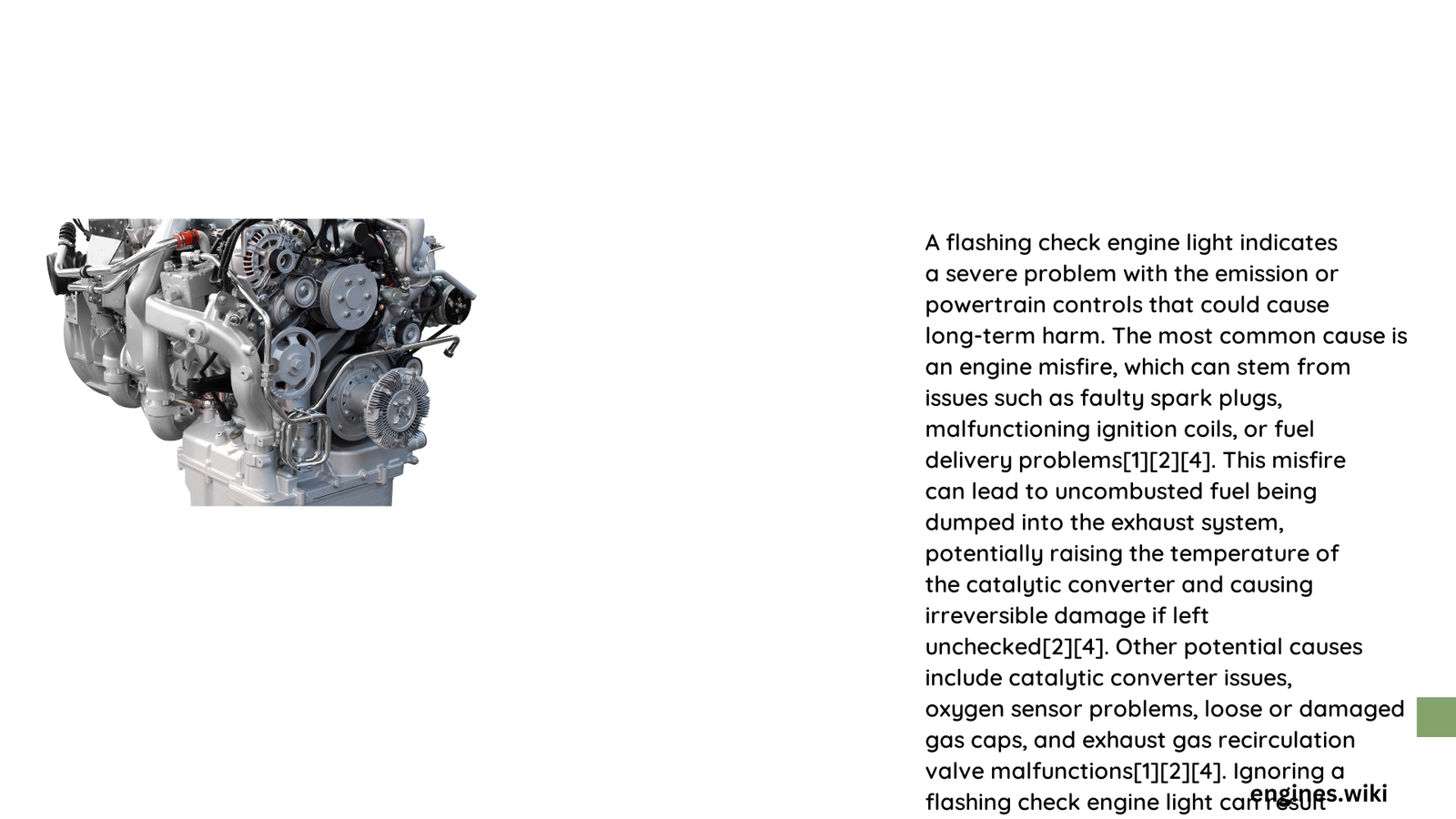A flashing check engine light represents a severe automotive emergency signaling potential catastrophic engine damage. Unlike a steady warning light, a blinking indicator demands immediate attention, suggesting critical malfunctions that could lead to expensive repairs or complete engine failure if not addressed promptly. Vehicle owners must understand the urgency and take swift, calculated actions to diagnose and resolve underlying mechanical issues before irreversible damage occurs.
What Triggers a Flashing Check Engine Light?
Why Do Engine Misfires Cause Light Blinking?
Engine misfires represent the most common catalyst for a flashing check engine light. When one or multiple cylinders fail to combust fuel correctly, the vehicle’s onboard computer detects significant performance disruptions.
Potential Misfire Sources
- Faulty spark plugs
- Damaged ignition coils
- Compromised fuel injectors
- Electrical system irregularities
What Diagnostic Codes Indicate Serious Problems?
| Code Range | Potential Issue | Severity Level |
|---|---|---|
| P0300-P0306 | Cylinder Misfires | High |
| P0171-P0175 | Fuel System Imbalance | Moderate to High |
| P0420-P0430 | Catalytic Converter Failure | Critical |
How Quickly Should You Respond?
When experiencing a flashing check engine light, immediate action is crucial:
- Reduce Driving Speed: Minimize vehicle stress
- Avoid Prolonged Operation: Prevent potential engine damage
- Schedule Professional Diagnostic: Within 24-48 hours
What Complex Systems Might Trigger the Warning?
Several interconnected vehicle systems can activate the flashing check engine light:
- Ignition System: Spark plug and coil malfunctions
- Fuel Delivery: Pump, filter, and injector complications
- Emissions Control: Catalytic converter and oxygen sensor issues
- Electrical Network: Sensor and computer communication problems
Can You Diagnose the Problem Independently?
While professional diagnosis is recommended, vehicle owners can take preliminary steps:
- Use an OBD-II scanner to retrieve diagnostic trouble codes
- Perform visual inspections of accessible engine components
- Check for loose connections or obvious physical damage
- Monitor vehicle performance characteristics
What Are Potential Repair Cost Ranges?
Repair expenses vary significantly based on the specific issue:
- Minor Repairs: $100 – $300
- Spark plug replacement
-
Sensor modifications
-
Moderate Repairs: $500 – $1,000
- Fuel system component replacement
-
Ignition system overhaul
-
Major Repairs: $1,500 – $3,000
- Catalytic converter replacement
- Comprehensive engine diagnostics
- Potential engine reconstruction
How to Prevent Future Check Engine Light Incidents?
Proactive maintenance strategies include:
- Regular scheduled service intervals
- Using high-quality fuel
- Addressing minor issues promptly
- Maintaining proper fluid levels
- Following manufacturer-recommended maintenance schedules
Expert Recommendations

Vehicle experts unanimously agree that a flashing check engine light should never be ignored. The potential for catastrophic engine damage far outweighs the temporary inconvenience of professional diagnostic assessment.
Final Advice
- Do not continue extended driving
- Seek professional diagnostic services
- Prioritize immediate inspection
